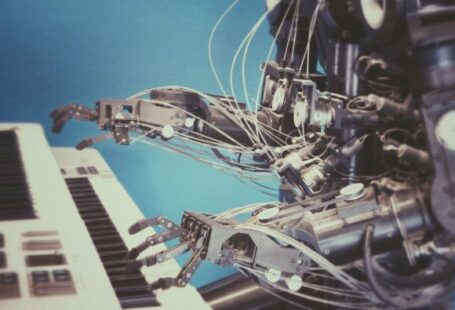Innovation has always been at the forefront of human progress, driving advancements in various fields such as technology, healthcare, and communication. However, with the emergence of artificial intelligence (AI), innovation has taken on a whole new dimension. AI has the potential to revolutionize the way we think, work, and live, and its impact on innovation cannot be overstated. In this article, we will explore the evolution of innovation in the age of artificial intelligence and examine how AI is transforming the landscape of innovation.
The Power of AI in Driving Innovation
Artificial intelligence is the technology that enables machines to mimic human intelligence and perform tasks that traditionally required human intervention. With its ability to process vast amounts of data, learn from patterns, and make intelligent decisions, AI has become a powerful tool for driving innovation. From self-driving cars to virtual assistants, AI has already made significant contributions to various industries.
Enhancing Creativity and Problem-Solving
One of the key ways in which AI is revolutionizing innovation is by enhancing creativity and problem-solving. AI algorithms can analyze large datasets, identify patterns, and generate insights that humans may not have been able to detect. This ability to uncover hidden connections and generate novel ideas is invaluable in driving innovation. AI-powered tools can also assist in the ideation process by suggesting new concepts or combinations that humans may not have considered.
Streamlining Research and Development
AI is also transforming the research and development (R&D) process, making it faster and more efficient. By automating repetitive tasks and analyzing vast amounts of data, AI can accelerate the discovery of new drugs, materials, and technologies. AI can also simulate complex scenarios and predict outcomes, reducing the need for costly and time-consuming physical experiments. This not only speeds up the innovation process but also reduces costs and enables researchers to focus on more creative and high-value activities.
Enabling Personalized Experiences
Another area where AI is driving innovation is in enabling personalized experiences. AI-powered recommendation systems, chatbots, and virtual assistants can analyze user data and provide tailored recommendations, advice, and support. This not only enhances user satisfaction but also opens up new opportunities for businesses to deliver customized products and services. AI can also analyze user behavior and preferences to predict future needs, enabling companies to stay one step ahead and anticipate customer demands.
Ethical Considerations and Challenges
While the potential of AI in driving innovation is immense, it also raises ethical considerations and challenges. As AI becomes more integrated into our daily lives, questions arise about privacy, bias, and accountability. AI algorithms are only as good as the data they are trained on, and if this data is biased or incomplete, it can lead to unfair or discriminatory outcomes. Additionally, the increasing automation of jobs raises concerns about job displacement and the need for upskilling and retraining.
Looking Ahead: The Future of AI and Innovation
As AI continues to evolve, the future of innovation looks promising. AI-powered technologies such as machine learning, natural language processing, and computer vision are becoming more sophisticated and capable. This opens up new possibilities for innovation in areas such as healthcare, transportation, education, and entertainment. However, it is essential to ensure that AI is developed and deployed responsibly, with a focus on transparency, fairness, and inclusivity.
In conclusion, artificial intelligence is transforming the landscape of innovation. It is enhancing creativity and problem-solving, streamlining research and development, and enabling personalized experiences. However, as we embrace the power of AI, we must also address the ethical considerations and challenges that arise. By doing so, we can harness the full potential of AI in driving innovation and shape a future that benefits all of humanity. The age of artificial intelligence is here, and it is up to us to ensure that innovation remains a force for good.





